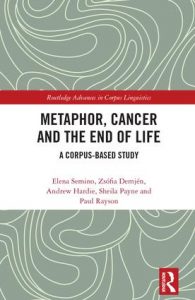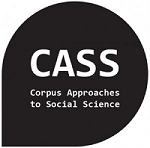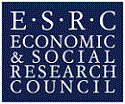
When talking about cancer, metaphors matter
(Originally posted on Rose Hendricks’ blog on 12 February 2019)
by Rose Hendricks
Cancer is hard to talk about. It’s serious, often frightening, and complicated. So, as with many complex topics, we often turn to metaphor. In discussions of cancer, metaphors are rampant. One in particular — that of a fight — is especially common.
She’s battling cancer
He’s putting up a real fight against his disease
You can beat this
Almost five years ago, someone I’m close to was diagnosed, and I started to realize how inappropriate this language felt — at least for this particular case I was witnessing. There was no fighting. There were bed-bound days, invasive procedures, and sympathy cards. One might say that just showing up to every appointment — especially those where you know you’ll feel terrible afterwards — is fighting, but that’s not how it looked to me. So I started to wonder: how does this pervasive “fight” metaphor affect the way we think about cancer? Are there better alternatives?
I was intrigued to find that I wasn’t the first who had asked these questions, and that there’s actually a substantial field of research on language related to illness. There were also articles in popular media, which would pop up without fail each time a famous person was publicly diagnosed with or died from cancer. People were not only using fight-related language to talk about cancer (e.g., Ruth Bader Ginsburg v. Cancer), but they were also questioning whether that language was appropriate (John McCain did not ‘lose’ his battle with glioblastoma — because cancer is not a war) and offering up alternatives (Cancer is a Journey, not a Battle).
But for all the interesting research and commentaries that were out there, I still wanted empirical evidence. When someone talks about “fighting a battle” with cancer, how does that affect the way we think about the illness? And if “battle” is a harmful metaphor, is “journey” better, as is often suggested?
Together with my collaborators Zsófia Demjén, Elena Semino, and Lera Boroditsky, we ran some experiments to learn more about the ways that “battle” and “journey” metaphors affect emotions and thoughts about someone who has cancer.
We learned that when people are told that someone is battling cancer, they predict that the person will be less likely to make peace with their situation and more likely to feel guilty if they don’t recover — because they should have “fought” harder.
We found this by running 5 experiments with a total of 1,629 participants. Every participant received a paragraph that talked about someone battling or someone on a journey with cancer. Aside from the metaphor, these passages were the same, and all participants indicated their agreement with the same two statements after reading:
- He* will feel guilty that he hasn’t done enough if he does not recover.
- He can make peace with his experience.
The fact that participants believed that someone battling would be more likely to feel guilty and less likely to make peace should give us pause. These are not optimistic beliefs and may not be conducive to healing.
But it’s also crucial to remember that this was an effect averaged over a lot of participants. It does not tell us that the battle is pernicious for all people in all cases. There may very well be people who prefer the battle metaphor, who feel energized and motivated by it, and who feel it most accurately captures their situation. But that’s a decision for people with cancer to make.
It’s not a decision for doctors, journalists, researchers, or even close family and friends to make. We should not impose our language on people with cancer (or any other illnesses, for that matter). If their experience is a battle, it’s a battle. And if it’s not a battle to them, we should not call it one.
The most important take-away for me, then, is not that we should use one metaphor and not another. It’s that metaphors are powerful tools, and we need to be thoughtful about how we wield them.
Here’s the link to the full paper. Please cite it as: Hendricks, R.K., Demjén, Z., Semino, E., & Boroditsky, L. (2019). Emotional Implications of Metaphor: Consequences of Metaphor Framing for Mindset about Cancer. Metaphor and Symbol, 33(4).
*In all studies except one, the subject of the paragraph was a male. We did this so we could most clearly understand the effects of the metaphor when all other characteristics of the information were the same. We did explore gender in one study (Experiment 4 in the paper posted above), but a lot more should be done to understand how the ways in which identity might interact with the effects that metaphors have on thinking about cancer.





